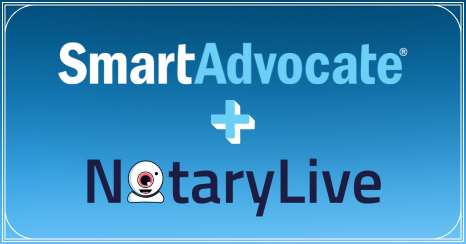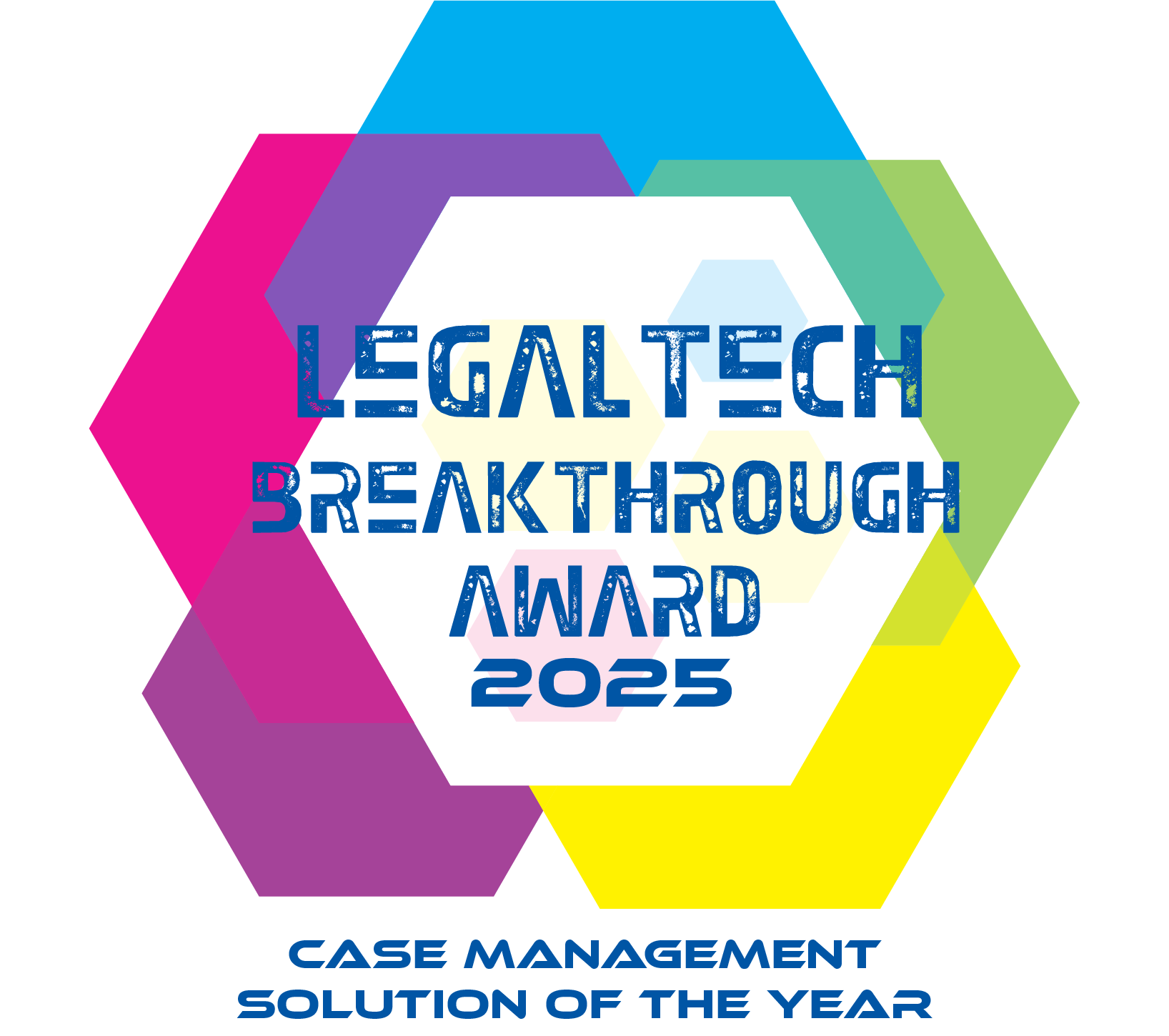Today's legal arena is no place for the technologically timid. Whether you're running a boutique practice or managing a sprawling firm, the days of manila folders and metal filing cabinets are about as relevant as fax machines at a tech conference. Modern law firms need modern solutions, which is why we're diving into the digital dynamic duo every successful practice needs: Case Management Software (CMS) and Document Management Systems (DMS).
While these technological tools both sound like they might do similar things, they serve distinctly different purposes. Let's figure out exactly what each system does, how they differ, and why your firm might actually need both.
The Modern Law Firm's Technological Backbone
The present-day environment demands more than just brilliant legal minds, it requires technological infrastructure that can keep pace with increasing complexity, higher client expectations, and mountains of information. Legal professionals are embracing innovative tools and strategies to enhance their firms’ efficiency, improve client services and interactions, and navigate an increasingly complex state of legal affairs. This evolution is not simply a trend, but a necessary adaptation to meet the demands of a rapidly changing world. Gone are the days when basic word processing and billing programs could satisfy a law firm's technological needs. Legal software has matured significantly since its first introduction in the 1970’s, giving rise to sophisticated tools like CMS and DMS that address increasingly complex requirements. But before we compare them head-to-head, let's break down the role of each one.
Case Management Software: Your Legal Command Center
Think of Case Management Software as the mission control for your legal practice, a centralized platform that handles virtually everything related to your cases and client relationships. It's designed to streamline your workflows and boost overall practice management by keeping all your case-related information in one place.
At its core, CMS functions as a comprehensive oversight system for all aspects of your legal matters. It's a systematic approach to handling legal cases from start to finish, ensuring nothing falls through the cracks. Think of it as your legal GPS, guiding you through the twists and turns of each case, from client intake to final billing. But it's more than just keeping things tidy. Legal case management is about streamlining your workflow, enhancing collaboration, and ultimately, winning more cases.
What CMS Actually Does
When implemented properly, a robust CMS solution will:
- Monitor Your Cases: Providing a comprehensive overview of all case-related information, including client details, documents, important dates, billing records, and scheduled appointments, all automatically updated for accuracy.
- Centralize Your Data: Creating a single, searchable repository for all client and case information that's accessible to authorized personnel from anywhere, eliminating the inefficiencies of fragmented data and the need to enter the same information multiple times.
- Control Your Intake Process: You want to retain as many prospects that meet your criteria as possible, and eliminate those who do not. This can be accomplished most effectively if you can create a detailed questionnaire for each case type that obtains all the necessary information from prospective clients so that you can make quick and appropriate intake decisions.
- Track Your Time and Billing: Enabling precise tracking of billable hours, generating accurate invoices, managing payment records, and ensuring your firm gets paid for all of the work it performs.
- Manage Your Calendar and Tasks: Scheduling appointments, court dates, deadlines, and tasks, often with automated reminders to ensure nothing falls through the cracks.
- Enhance Client Communication: Offering secure online portals where clients can access case updates, share concerns, review documents, and communicate directly with your firm. Automatically notify clients via text or email as significant events occur in their cases.
- Support Collaboration: Facilitating seamless communication and teamwork among legal professionals through shared documents, centralized notes, and secure messaging.
- Automate Documents: Creating legal documents using your firm’s existing documents and templates and automatically populating them with relevant data.
As legal technology continues to advance, the most sophisticated CMS platforms are now integrating AI assistance to enhance productivity even further, with features generating summaries of cases, medical files, motions, briefs, and depositions. Some even translate communications into your client’s preferred language, and transcribe audio from voicemails, depositions, or meetings.
SmartAdvocate stands out among CMS solutions as an innovative legal case management solution that offers comprehensive features without requiring third-party add-ons, making it a leading choice for forward-thinking law firms.
Document Management Systems: Mastering the Document Lifecycle
While CMS focuses on the overall case and client relationship, Document Management Systems zero in on the documents themselves. Document Management Systems are used to store and organize legal documents and streamline document workflow, which in turn aids in faster and more efficient operations. A centralized document management system helps in creating continuity and consistency within an organization. The systems are designed for automated file sorting, storage, and retrieval of electronically-stored legal documents with advanced search tools.
DMS manages the entire lifespan of a document, from creation and active use to eventual disposal or archiving. It's essentially your firm's digital librarian, ensuring every document is properly cataloged, easily retrievable, and securely stored.
What DMS Actually Does
A robust DMS will offer:
- Secure File Storage: Providing a centralized and highly secure repository for all types of electronic files, often with unlimited storage capacity.
- Organization and Categorization: Offering sophisticated tools to arrange documents logically by client, matter, document type, date, or custom tags.
- Powerful Search Functionality: Enabling swift location of specific documents through keyword searches, full-text search capabilities (including OCR for scanned documents), and advanced search parameters.
- Collaboration Tools: Facilitating secure document sharing, co-authoring capabilities, commenting, and real-time collaboration.
- Access Controls and Permissions: Allowing precise control over who can view, edit, download, or share specific documents based on user roles and permissions.
- Integration with Other Software: Working in conjunction with other critical legal software like CMS, email clients, and accounting software.
The evolution of legal document management systems has been remarkable, transforming from physical filing cabinets to sophisticated cloud-based platforms with AI capabilities. Modern DMS solutions offer increasingly advanced features that can dramatically improve a firm's efficiency and organization, with the best systems integrating seamlessly with comprehensive case management solutions.
CMS vs. DMS: The Key Differences
Now that we've examined the capabilities of each system, let's look at how they differ. Here's a comparative breakdown:

While both systems may handle documents, their fundamental objectives diverge significantly. CMS employs document management as one component within its comprehensive suite of features, while DMS is dedicated specifically to the thorough management of documents themselves.
How Law Firms Use These Systems in Daily Operations
CMS in Action
Law firms integrate CMS into their daily operations in numerous ways:
- Managing Case Information: Using CMS as a central hub for all case-related data, providing a complete overview of each matter.
- Tracking Deadlines and Schedules: Managing court dates, appointments, and critical deadlines with automated reminders.
- Streamlining Communication: Facilitating both internal team communication and secure client interaction.
- Automating Document Workflows: Using templates to create and manage case-related documents with auto-populated information.
- Managing Billing and Payments: Tracking billable time, generating invoices, and processing payments securely.
- Enhancing Collaboration: Providing a central platform for teamwork across all aspects of a case.
- Generating Reports and Analytics: Offering insights into case progress, firm performance, and other key metrics.
DMS in Action
Meanwhile, DMS plays these complementary yet crucial roles in daily operations:
- Centralized Document Storage and Retrieval: Providing a single, secure location for all legal documents with powerful search functionality.
- Managing Document Versions and History: Tracking changes, saving previous versions, and maintaining comprehensive audit trails.
- Facilitating Document Collaboration: Enabling multiple team members to work on documents simultaneously and manage approval processes.
- Ensuring Security and Confidentiality: Implementing stringent access controls and robust encryption to protect sensitive information.
- Automating Document Creation: Streamlining the creation, review, and approval of various legal documents. Automatically creating documents based on events that occur in a case.
- Managing Email Correspondence: Storing and organizing emails related to specific cases directly within the system. Automatically creating and sending emails based on events that occur in a case.
- Facilitating Compliance: Helping firms adhere to document retention policies and regulatory requirements.
- Reducing Paper Usage and Storage Costs: Enabling a transition towards a paperless office environment.
Impact on Growth and Scaling
Both CMS and DMS play vital roles in helping law firms grow and scale efficiently:
How CMS Supports Growth and Scaling
- Increased Efficiency and Productivity: Automating routine tasks allows lawyers to handle more cases and focus on billable activities.
- Enhanced Client Satisfaction: Improved communication leads to positive reviews, referrals, and repeat business.
- Better Time Management and Billing Accuracy: Ensuring all billable hours are tracked and accurately invoiced improves cash flow.
- Data-Driven Decision Making: Analytics provide insights into performance and growth opportunities.
- Standardized Processes: Making it easier to onboard new employees and maintain consistent service quality.
- Enhanced Collaboration Across Locations: Allowing team members in different locations to work together seamlessly.
- Efficient Talent Allocation: Helping assign cases based on skills and availability.
How DMS Supports Growth and Scaling
- Increased Efficiency in Document Handling: Reducing time spent on administrative tasks.
- Reduced Risk of Errors: Features like version control protect from potential liabilities.
- Enhanced Client Service: Enabling quick access to documents and efficient paperwork processing.
- Centralized Document Repository: A proper DMS readily accommodates increasing document volumes as firms grow.
- Improved Collaboration: Enabling seamless document sharing across growing teams.
- Enhanced Security and Compliance: Maintaining data integrity as operations scale.
- Reduced Administrative Burden: Handling larger workloads without proportional staff increases.
Choosing the Right Solution for Your Firm
Which system does your firm need? The answer might not be what you expect.
Given their distinct yet complementary functionalities, many law firms find that implementing both CMS and DMS provides the optimal approach. Understanding the core differences and specific strengths of each type of system is essential for making informed decisions about your firm's technology stack.
The ideal solution is an integrated platform that combines robust case and document management capabilities in a single system.
SmartAdvocate stands out in this regard, offering a comprehensive solution that addresses both case management and document management needs without requiring third-party add-ons or complex integrations. This all-inclusive approach eliminates the inefficiencies of toggling between separate systems while ensuring all aspects of your practice are managed through a unified interface.
By carefully assessing your firm's unique needs and adopting a truly integrated platform like SmartAdvocate, you can significantly enhance efficiency, improve client service, support sustainable growth, and ultimately achieve long-term success in today's competitive legal landscape. The right technology partner doesn't just provide software, it offers a complete solution that evolves with your practice and empowers your team to deliver exceptional legal services.
FAQ: Case Management Software vs. Document Management Systems
- Can a law firm effectively operate with just one system, either CMS or DMS?
While it's possible to operate with just one system, doing so likely means sacrificing efficiency in certain areas. CMS excels at managing the overall case lifecycle but may lack advanced document management features. Conversely, DMS provides superior document handling but doesn't address case management needs like client communication, billing, and deadline tracking. - How do cloud-based CMS and DMS solutions compare to on-premises options?
Cloud-based solutions offer several advantages, including easier remote access, automatic updates, reduced IT infrastructure costs, and better scalability. While on-premises solutions may provide more control over security and customization they typically require significantly greater upfront investment and ongoing maintenance costs. The industry trend is clearly moving toward cloud-based options for their flexibility and accessibility, particularly as more firms embrace remote and hybrid work models. - What's the typical return on investment timeline for implementing these systems?
While initial implementation requires investment in both software and training, most firms begin seeing ROI within 3-6 months through improved efficiency, better time tracking, reduced administrative costs, and enhanced billing accuracy.The long-term benefits of fewer errors, increased efficiency, improved client satisfaction, and better data security continue to accumulate over time, making these systems essential investments for forward-thinking law firms. - What security considerations should firms prioritize when selecting CMS or DMS?
Security is paramount for both systems. Look for features such as two-factor authentication, role-based access controls, comprehensive audit trails, secure client portals, and regular security updates. Additionally, ensure the solution complies with relevant regulations for data protection and client confidentiality in your jurisdiction.








